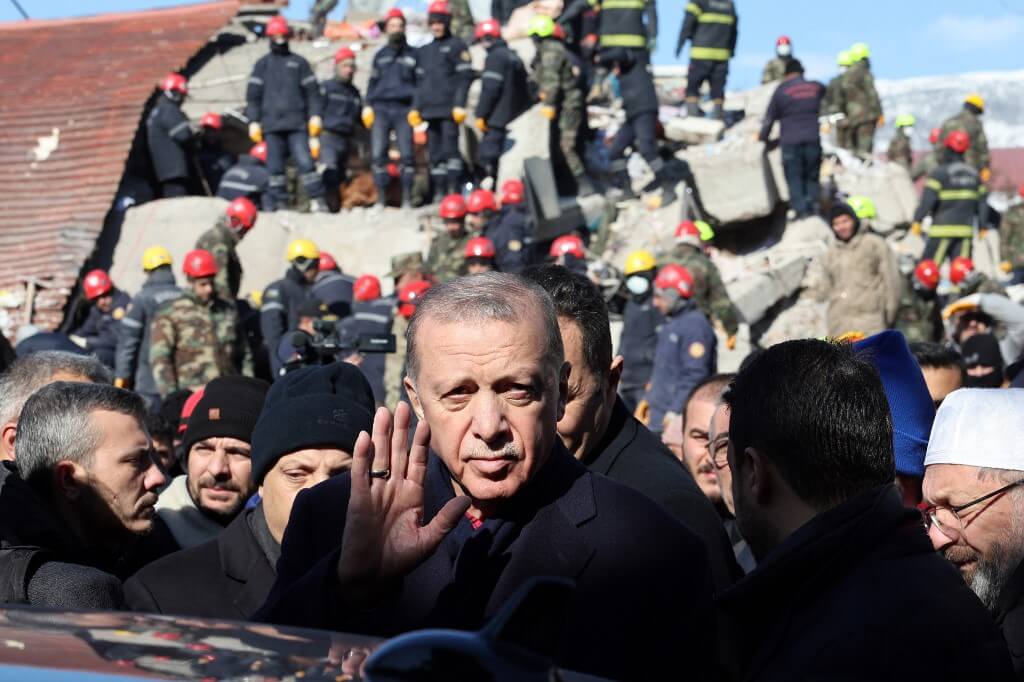A majority of supporters of the ruling Justice and Development Party (AKP) and its far-right election ally think the government was not prepared to respond to the major earthquakes that struck the country’s south last month, according to the results of a public survey.
The “Turkey’s Pulse” survey conducted by the Metropoll polling company in February has revealed that 81.9 percent of respondents believe that the AKP government was not prepared to adequately respond to the disaster. A total of 66.4 percent of AKP supporters and 76.7 percent of Nationalist Movement Party (MHP) supporters shared the same belief about the government’s inadequate response to the disaster, which claimed the lives of more than 50,000 people and destroyed thousands of buildings across 11 provinces in Turkey’s south and southeast on Feb. 6.
The survey was conducted Feb.23-28 across 28 provinces with the participation of 2,118 people.
Only 15.4 percent of respondents said they think the government was ready to respond to the earthquakes.
The Turkish government has been accused of poor performance in coordinating search and rescue efforts in the aftermath of the earthquakes, mainly failing to mobilize enough people and a lack of coordination among the teams, which resulted in civilians in some regions trying to pull their loved ones from under the rubble themselves.
When they were asked whether the AKP government, which came to power in 2002 shortly after a powerful earthquake in Turkey’s Marmara region claimed the lives of more than 17,000 people when another government was in power, used taxes collected to prepare the country for earthquakes efficiently, 64.7 percent of respondents said they didn’t think the earthquake tax was used in line with the purpose of its collection.
The so-called earthquake tax [also known as special communications tax] was introduced in the aftermath of the earthquake in the Marmara region. Initially described as a temporary tax, it became a permanent tax aimed at the prevention of earthquake-related damage.
However, experts and opposition politicians say that much of the revenue from the tax was not spent on earthquake-protection measures to fund projects to reinforce buildings and prepare cities to better cope with earthquakes.
Then-Finance Minister Mehmet Şimşek said in response to questions about how the earthquake tax was used, after the eastern province of Van was hit by a deadly earthquake in 2011, that it has been used for other purposes such as construction of highways, on education and healthcare.
